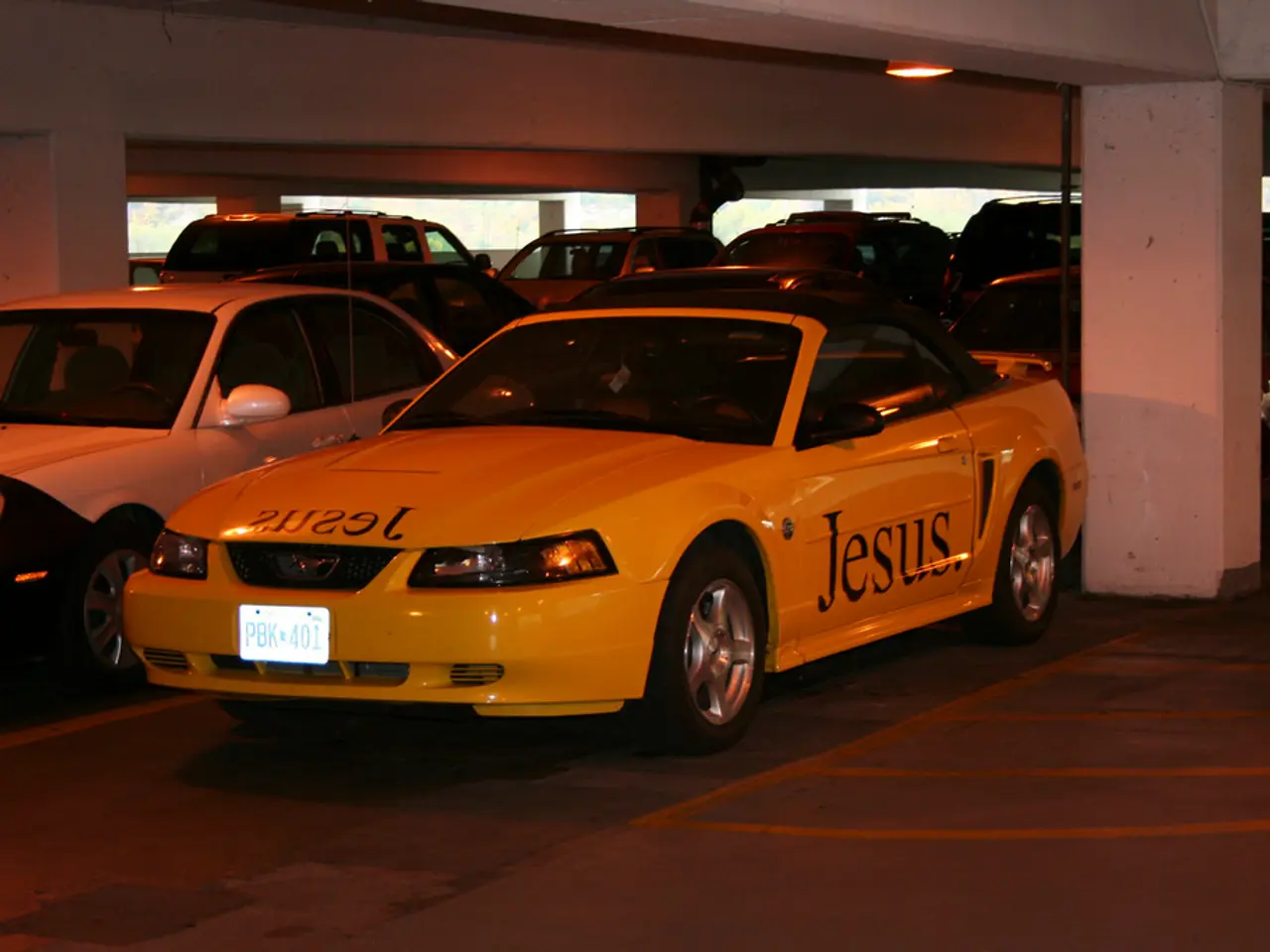Deterioration continues unabated
In the bustling city of Wuppertal, the streets are becoming increasingly congested due to an influx of private cars and the occupation of public spaces for parking and delivery vehicles. This situation has been a topic of discussion, with Paul Meerkamp presenting solutions to ease parking issues in major cities on July 31, 2025, as reported in Zeit-Online.
A significant issue that contributes to this congestion is the lack of parking garages, even in residential areas. Between 2020 and 2025, there was an increase of 4,139 private cars in Wuppertal, exacerbating the problem.
Recent studies in Cologne (Agnesviertel) have shown that 70% of parked cars could be immediately parked in private spaces and backyards, suggesting a potential solution to the parking crunch. However, the misuse of private parking spaces remains a concern.
To improve the parking situation, a demand has been made to make residential parking more expensive. This could help deter long-term parking and encourage the use of parking garages. On-street parking in Wuppertal is currently too cheap, making it unprofitable for investors to build parking garages.
One way to address this issue is by enhancing parking garage availability and organization. For instance, APCOA in Wuppertal manages digital, accessible parking garages like Neumarkt, which offer clear hours, designated spaces (disabled, women/family), and automated entry/exit systems to improve usability.
Another approach is implementing intelligent pricing. Pricing can discourage long-term or inappropriate parking and encourage turnover. The Neumarkt garage, for example, charges €2.50 per started hour with a maximum daily rate of €20, balancing affordability with effective space utilization.
Leveraging digital and smart technologies can also help. Modern camera-based license plate recognition systems and digital parking management enable identification and prevention of unauthorized parking, such as misuse of private parking spaces by non-customers or long-term parkers. Companies like ParkRaum-Management PRM GmbH deploy such smart solutions to reduce parking pressure by eliminating unauthorized usage and streamlining space usage in crowded areas.
Reducing parking misuse of private spaces is another key strategy. Technology helps enforce parking rules by detecting and restricting access to private parking zones. Automated systems monitor usage, allowing only authorized vehicles, thus preserving parking availability for intended users.
Integrated city-wide parking management strategies can further improve efficiency. While not specific to Wuppertal, research on optimizing parking zones, including micromobility considerations, highlights how dynamic management of parking spaces can improve overall efficiency, making better use of limited urban space and reducing traffic caused by searching for parking.
In conclusion, a combination of expanding organized parking options, employing dynamic pricing, and applying smart technology-based enforcement can alleviate parking difficulties in Wuppertal and similar cities while reducing misuse of private parking spaces and improving user experience.
For further discussions and letters to the editor, please visit our reader letters section by clicking the specific link provided. Dirk Schönwetter wrote a letter to the editor of the website, expressing his concerns and suggestions regarding the parking issues in Wuppertal. The search for a parking spot cost the average German driver 41 hours per year in 2020, underscoring the urgency for action.
- The influx of private cars and lack of parking garages in certain areas, such as residential ones, has contributed to the congestion in Wuppertal's streets, as shown by data from 2020 to 2025.
- To combat issues related to climate-change and environmental-science, it's essential to consider strategies like optimizing parking spaces, implementing intelligent pricing, and utilizing smart technologies to manage parking effectively.
- The financing of public-transit systems is crucial in promoting transportation alternatives, reducing the dependence on private vehicles, and eventually alleviating the parking problem in cities like Wuppertal.
- To foster a greener and more sustainable environment, municipalities should prioritize and invest in industries like environmental-science, infrastructure projects, and digital technologies to effectively manage urban spaces and promote environmental awareness.




